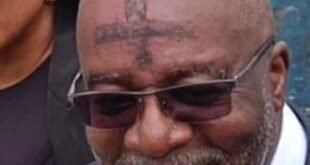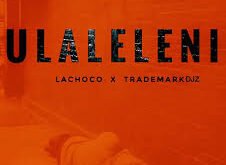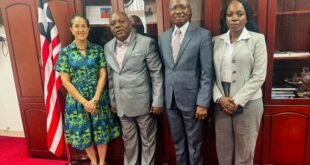By Othello B. Garblah
A recent statement by Liberia’s 177th Independence Day Orator on the US-Liberia relationship has sparked a new debate about the bilateral relationship between the two countries.
Over the years, both countries have prided themselves on being traditional allies with a “special relationship,” which has been widely construed among the comity of nations. Freed American slaves are the founding fathers of Liberia, cementing the bond between the two countries.
However, Dr. Robtel Neajai Pailey’s oration, indicating that America has always served its own interests above all else in this “special relationship,” has renewed vigor to the US-Liberia relationship debate.
Dr. Pailey: “Finally, I remain very concerned about the outsized influence of the United States in our transitional justice process. We must forge new strategic partnerships based on mutual benefit and disabuse ourselves of the notion that we have a ‘special relationship’ with America. Truth be told, this so-called ‘special relationship’ only exists in our imagination. Lest we forget, the United States was one of the last countries to recognize our independence. Lest we forget, the United States has taken more from us than it has given. Lest we forget, the United States will always serve its own interests above all else. Once we accept these truths, we will appreciate that a re-imagined Liberia can never be anyone’s ‘stepchild.’”
From an international standpoint, the Americans are not the problem, but the Liberian political leaders are. In every given relationship, mutual interests are expressed. How the parties maximize those expressed interests is left to them individually.
Students of international studies are taught that countries should have a clear-cut goal or agenda before entering any bilateral relationship; they should know what they want and who to befriend to get it because such a relationship is all about interest.
A bilateral relationship between two countries is established through diplomatic interactions, trade agreements, and cultural exchanges to enhance mutual benefits.
Like in any human relationship, both countries in a bilateral relationship will always try to protect their own interests. Allowing oneself to be exploited in a relationship is not the other party’s fault.
If the Orators’ assertions in the ongoing debate are true, America is doing exactly what is required to protect her own interests. Doing so is in no way treating Liberia like a stepchild.
The problem with the Liberian political ruling class is that they want America to put aside her interest and look out for Liberia, and this is not how bilateral relationships work. These are two sovereign states, for Christ’s sake!
A country should be able to stand up and make the requisite demands from the other party based on the mutually beneficial agreement between the two unless Liberians view the relationship between Liberia and the United States as a father-and-son relationship rather than two sovereign nations.
Lest we forget, the US-Liberia relationship has always brought with it questions about Liberia’s foreign policy- different strategies countries use to guide their relationships with other countries and international organizations. Such strategies appear to be lacking at the helm of the country’s political leadership, which the President drives. Plain and simple, Liberia has no clear-cut foreign policy unless there is a line that says its foreign policy is modeled after that of the Americans.
That is, while at the United Nations, Liberia would wait to see in which direction the United States would vote on global issues before casting its votes.
Liberians have always pursued the notion of a special relationship with the United States because the country has refused to decide what it wants in any given bilateral relationship as a nation.
A country without a clear-cut foreign policy or vision that is in line with its national development agenda will always feed from the crumbs of others because it has no defined interest and stands for nothing. This puts it at a perpetual begging end. Liberia has no clear-cut vision when it comes to what it wants and who to befriend to get it.
This is why America is not the problem here. Liberia’s political rulers have been the problem from day one, and that practice has continued over the years. America is only maximizing such privilege since she knows what she wants and knows how to get it. The US cannot be blamed for Liberia’s failure to demand what the relationship requires.
Liberian political leaders should know they have the right to choose what best serves the country’s interest and seek bilateral relationships that will provide those needs in line with the country’s developmental needs rather than blaming America for its indecisiveness.
It’s time for our political leaders to abandon this diplomatic laissez-faire attitude and adopt a well-defined foreign policy that prioritizes Liberia’s interests.
President Boakai recently lunched his ARREST Agenda, as to whether this agenda is being aligned with the country’s foreign policy is another subject for discussion.
 JamzNG Latest News, Gist, Entertainment in Nigeria
JamzNG Latest News, Gist, Entertainment in Nigeria









